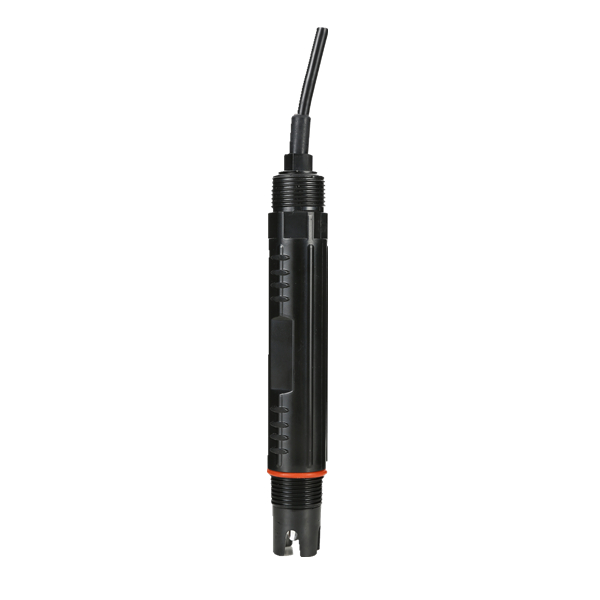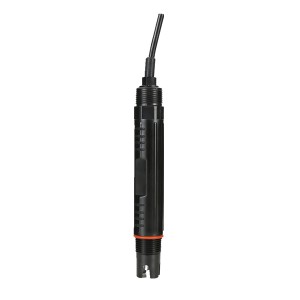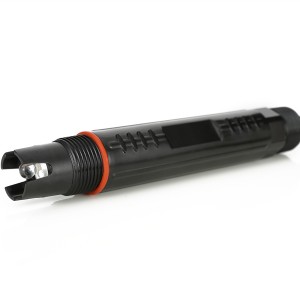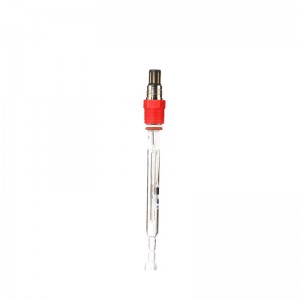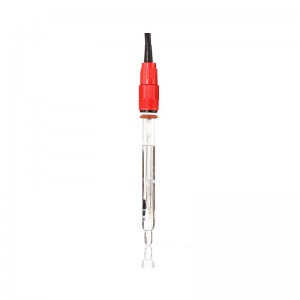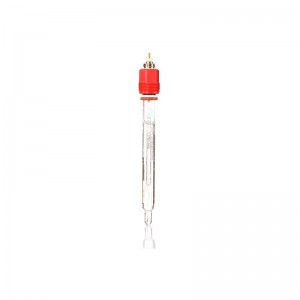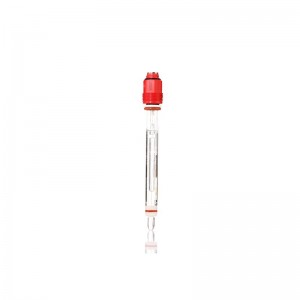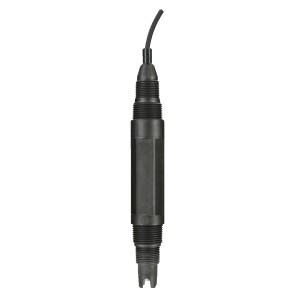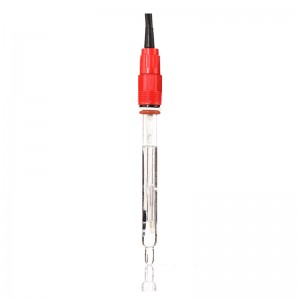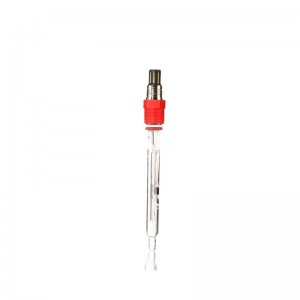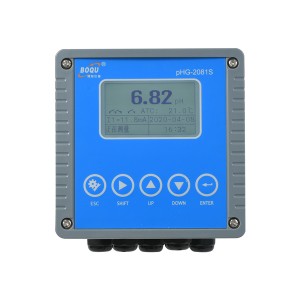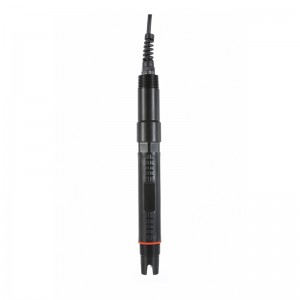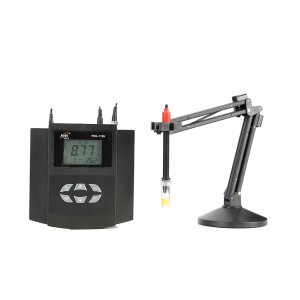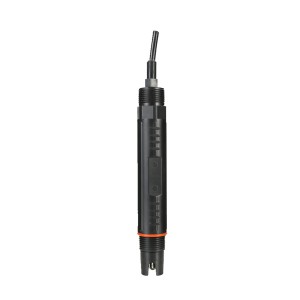In PH measurement, the used pH electrode is also known as the primary battery. The primary battery is a system, whose role is to transfer chemical energy into electrical energy. The voltage of the battery is called the electromotive force (EMF). This electromotive force (EMF) is composed of two half-batteries. One half-battery is called the measuring electrode, and its potential is related to the specific ion activity; the other half-battery is the reference battery, often called the reference electrode, which is generally interlinked with the measurement solution, and connected to the measuring instrument.
| Measuring range | 0-14pH |
| Temperature range | 0-60℃ |
| Compressive strength | 0.6MPa |
| Slope | ≥96% |
| Zero point potential | E0=7PH±0.3 |
| Internal impedance | 150-250 MΩ (25℃) |
| Material | Natural Tetrafluoro |
| Profile | 3-in-1Electrode (Integrating the temperature compensation and the solution grounding) |
| Installation size | Upper and Lower 3/4NPT Pipe Thread |
| Connection | Low-noise cable goes out directly |
| Application | Applicable to various industrial sewage, environmental protection and water treatment |
| ●It adopts the world-class solid dielectric and a large area of PTFE liquid for junction, non-block and easy maintenance. |
| ● Long-distance reference diffusion channel greatly extends the service life of electrodes in the harsh environment |
| ● It adopts PPS/PC casing and the upper and lower 3/4NPT pipe thread, so it is easy for installation and there is no need of the jacket, thus saving the installation cost. |
| ● The electrode adopts the high-quality low-noise cable, which makes the signal output length more than 20 meters free of interference. |
| ● There is no need for additional dielectric and there is a little amount of maintenance. |
| ● High measurement accuracy, fast responsing and good repeatability. |
| ● Reference electrode with silver ions Ag/AgCL |
| ● Proper operation shall make service life longer. |
| ● It can be installed in the reaction tank or pipe laterally or vertically. |
| ● The electrode can be replaced by a similar electrode made by any other country. |

pH measurement is a key step in many water testing and purification processes:
● A change in the pH level of water can alter the behavior of chemicals in the water.
● pH affects product quality and consumer safety. Changes in pH can alter flavor, color, shelf-life, product stability and acidity.
● Inadequate pH of tap water can cause corrosion in the distribution system and can allow harmful heavy metals to leach out.
● Managing industrial water pH environments helps prevent corrosion and damage to equipment.
● In natural environments, pH can affect plants and animals.

